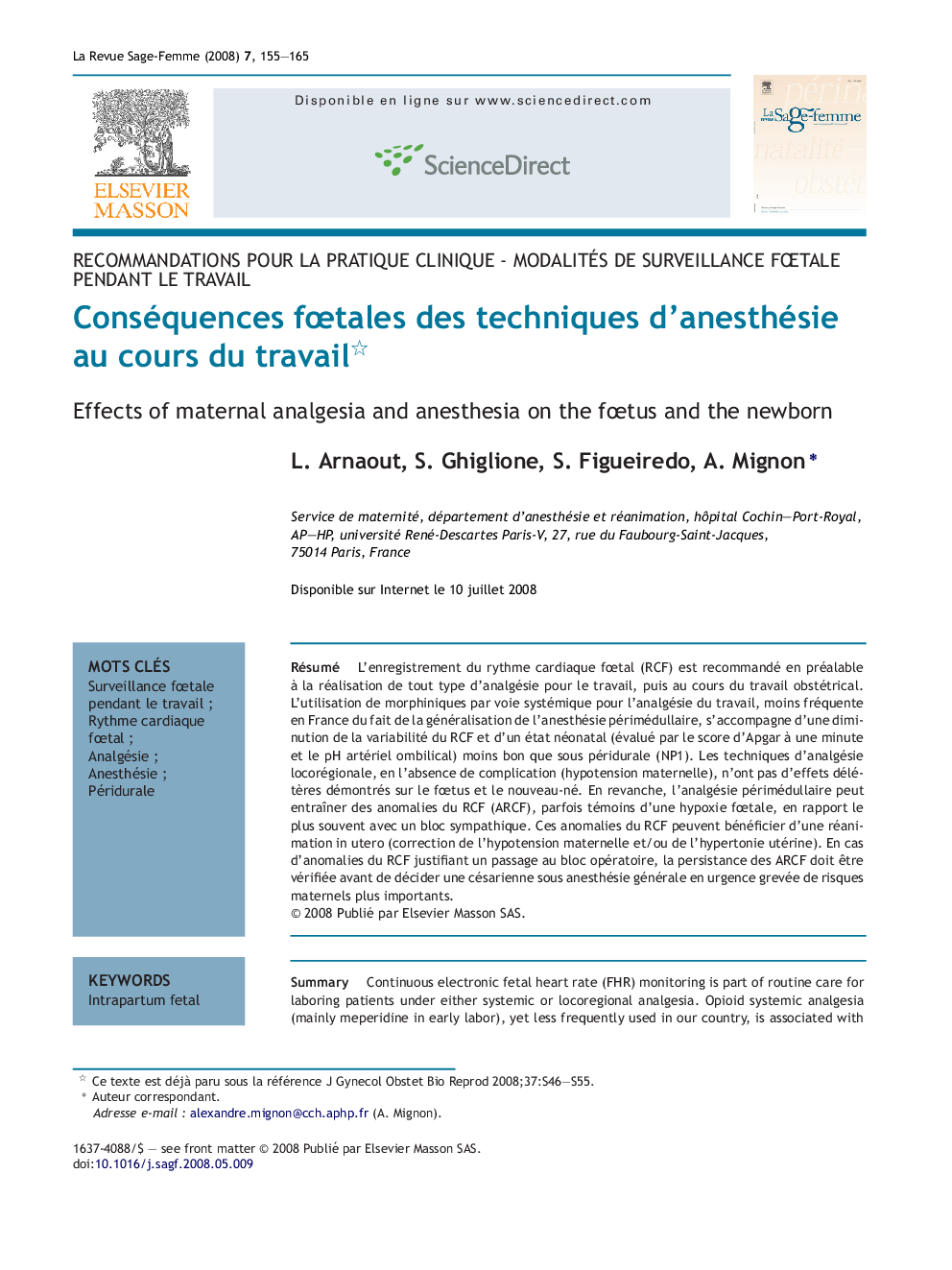| کد مقاله | کد نشریه | سال انتشار | مقاله انگلیسی | نسخه تمام متن |
|---|---|---|---|---|
| 2635502 | 1137321 | 2008 | 11 صفحه PDF | دانلود رایگان |
عنوان انگلیسی مقاله ISI
Conséquences fÅtales des techniques d'anesthésie au cours du travail
دانلود مقاله + سفارش ترجمه
دانلود مقاله ISI انگلیسی
رایگان برای ایرانیان
کلمات کلیدی
موضوعات مرتبط
علوم پزشکی و سلامت
پزشکی و دندانپزشکی
زنان، زایمان و بهداشت زنان
پیش نمایش صفحه اول مقاله

چکیده انگلیسی
Continuous electronic fetal heart rate (FHR) monitoring is part of routine care for laboring patients under either systemic or locoregional analgesia. Opioid systemic analgesia (mainly meperidine in early labor), yet less frequently used in our country, is associated with a decrease in FHR-variability and worse acid-base and neonatal status compared to epidural or combined spinal epidural analgesia. Although epidural analgesia may cause maternal hypotension and fever, longer second stage of labour and more instrumental vaginal deliveries, these potentially adverse factors appear to be outweighed by benefits on clinical and neonatal acid-base status when compared with maternal opioid systemic analgesia. The mechanisms by which epidural or spinal analgesia may affect fetal well-being include maternal hypotension and/or uterine hyperactivity. All these undesirable side effects which may induce severe intrapartum fetal distress must be adequately detected and treated with intrauterine resuscitation techniques, including correction of maternal hypotension and/or the use of tocolytics agents. Reinstallation of electronic fetal monitoring at arrival in the operating room before cesarean section for suspected fetal hypoxia may be helpful to choose better anesthetic technique and try to avoid general anesthesia associated with increased maternal morbidity and mortality.
ناشر
Database: Elsevier - ScienceDirect (ساینس دایرکت)
Journal: La Revue Sage-Femme - Volume 7, Issue 3, July 2008, Pages 155-165
Journal: La Revue Sage-Femme - Volume 7, Issue 3, July 2008, Pages 155-165
نویسندگان
L. Arnaout, S. Ghiglione, S. Figueiredo, A. Mignon,